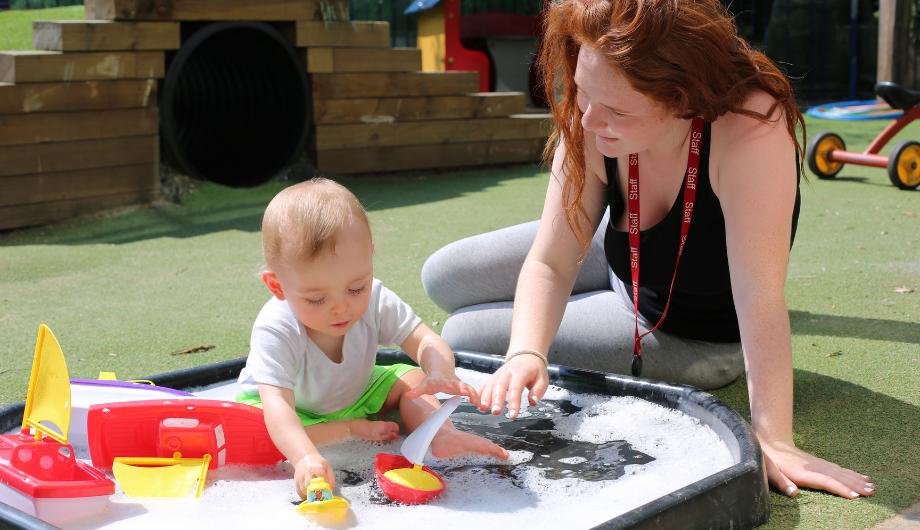
Talking Early Years: In Conversation with Prue Leith
We are all in a terrific conspiracy, we are all making money from it! Listen to Prue Leith’s take on obesity… In this podcast…
February 8th 2016
London Ofsted Big Conversation – 19th January 2016 (Hosted by Ofsted at Aviation House & Chaired by June O’Sullivan)
In attendance from Ofsted
Mike Sheridan Regional Director
Wendy Ratcliff EY HMI
Martin Jeffs EY Senior Officer
Michelle Winter SHMI Early Years
| Agenda | Other Issues Arising During the Conversation |
| Update on EYFS | Small Business Act |
| British values | Information Sharing |
| Scrutiny Panels | Childminding Agencies |
| Support for Children’s Health | Paid For Inspections |
| Transfer of Contracts | 25% cuts |
| Aligning Health and Safety with Ofsted Regulations | Ofsted Role in the delivery of the 30 Hours |
Best Ofsted Read at the Moment:
Teaching and Play in the EY; A Balancing Act Ref: 150085
https://www.gov.uk/government/publications/teaching-and-play-in-the-early-years-a-balancing-act
Introduction
The principle of good communication as the basis of collaboration and effective relationship was reaffirmed from the outset. The value of the OBC was shared as was the need to maintain the dialogue and for the sector and Ofsted to continue to engage positively and constructively. A message we would also like to share with Social Care.
Agenda
Wendy Ratcliff did a quick round up of first impressions of the CIF. She asked for feedback on the process, including the half days’ notice. Overall the audience provided positive comments with a CM actively noting that the inspection was less process focused and more humane and relaxed she felt that her inspector had better and more fully examined her practice. The half days’ notice was welcomed as it helps staff calm down before the inspector arrives and that results in the staff making better use of the time to plan the inspection and have all the materials to hand so they can showcase the setting more easily. One issue was to consider the means of contacting as call time clash with busy lunch time and messages left on answerphones may not be picked up
She confirmed that there were no known plans to amend the EYFS other than to update and make reference to new publications as required.
Action:
As with any new framework, Ofsted will continue to monitor the impact of the CIF; however Ofsted has given a public commitment not to change the CIF significantly for some time. There will therefore not be major changes to the Early Years Inspection Handbook. Some minor ‘tweaks’ may be necessary to reflect small changes identified (for example, to update links to new publications or clarify text in a small way). But the grades and judgements will remain the same.
2. British Values
Ofsted is keen to listen to the sector as to how this is being inspected. Anxiety remains as to interpretation by inspectors. Ofsted remains hopeful that there will be less discordancy as 900 inspectors were trained by Ofsted to translate the values into practice. Early days yet and suggested Ofsted look at British values as part of their Good Practice Guidance and showcase some case studies of settings translating the Values with confidence.
Ofsted confirmed that the implementation of the CIF helpfully coincided with the Government’s Prevent agenda and the Fundamental British values policy. Any review of the CIF overall will include how they inspect against the FBV agenda.
Action: Keep this on the OBC agenda
3. Scrutiny Panels
Feedback from colleagues in York and Manchester was that Scrutiny Panels were welcomed and the idea of a Government body opening up their complaints process to independent sector specific experienced professionals was revolutionary and should be welcomed by all sectors within education.
Ofsted confirmed that London first Scrutiny Panel would be in January. The rule is that the panel considers complaints that are from outside their region. The panel has three members plus a note-taker; a chair, a remit specific Ofsted inspector and the independent person. The panel member is given two weeks’ notice and does not receive any documentation in advance to avoid any pre-judgement. However OBC members from Manchester and York who have taken part in panels said that there was plenty of reading time. Their experience was that the panel reviewed all the documents, checking accuracy, consistency, substance and validity, then finally to make their collective decision on the Step 3 review.
The panel decided whether to uphold the Step 3 review or not including the ability to make changes to actions and recommendations, or even overturn the inspection grade if needed. They strongly advised panel members to bring their EYFS framework and the descriptors for the grades with them as they were referred to a lot.
The audience also asked that childminders be considered for Scrutiny Panels especially if the complainant was a childminder. Following the meeting Ofsted confirmed they have already written to a number of childminders to invite them to become panel members.
Action: OBC website to keep note of feedback from Panel Members attending Scrutiny panels
4. Support for Children’s Health
Child Obesity from Dr Lala Manners
Dr Manners gave an impassioned talk on the issue of child obesity among young children which is fast turning into a health ‘crisis’. 12% of children arrive at nursery overweight – 60.000 children enter formal education in this condition. She asked for Ofsted to help raise the issue and support the efforts to improve nutrition, raise the importance of good quality physical development and share the importance of behaviour change in staff, parents and then ultimately children. She highlighted challenges such as the Early Learning Goals 3 and 4 (Moving and Handling/Health and Self Care) have assessment procedures attached that just don’t work – we cannot have data that claims 86% of children are at an ‘expected’ level of PD (in education terms they probably are) – but at the same time we know 90% are not experiencing a level of daily PA to support their overall health/well-being. The Baseline Assessments (3 choices) do not have a PD component – even though the EYFSC is mandatory for the Reception Year. Her website www.activemovement.co.uk is a very useful place to begin.
5. Transfer of Contracts
Ofsted colleagues confirmed that a decision about the future operating model for early year’s inspections will be made shortly. The group pointed out that good commissioning took account of the needs of those who are inspected as much as those who inspect. We referenced the Cabinet Office Commissioning Academy as a source of good practice.
6. Aligning Health and Safety with Ofsted Regulations
Discussion about growing evidence of HSE decisions from their environmental inspections which clash with what EY sector agrees is “risky play” or challenging learning environments. JOS quoted an example where following an accident the HS inspector requested we ban large community plaything blocks. We refused to do this and strengthened our risk assessment but the two very different perspectives posed quite a debate. Ofsted and HSE work to different regulations and as such we just need to continue to collect evidence of examples of where there are different perspectives which may negatively affect the children.
Action: OBC to keep a note of examples of HSE and Ofsted clashes
7. Other Issues Arising from Conversation
“…Public bodies should provide services that are easily accessible to their customers. Policies and procedures should be clear and there must be accurate, complete and understandable information about the service. Public bodies should behave helpfully, dealing with people promptly, within reasonable timescales and within any published time limits. They should tell people if things take longer than the public body has stated, or than people can reasonably expect them to take. Public bodies should communicate effectively, using clear language that people can understand and that is appropriate to them and their circumstances.”
“If you are an organisation applying to provide childcare on domestic or non-domestic premises, you should nominate a person to represent the organisation in its dealings with us. Normally this should be a committee member, partner or director. This person will be interviewed during the registration process and will receive all legal documents and correspondence.
Known as the nominated person, this person must be the most senior person in the organisation who has delegated, clearly identifiable and direct responsibility for managing, planning and monitoring the childcare.”
You will see the above wording says ‘normally’, which gives us the opportunity to nominate or delegate to a senior member of the team.
Under the new guidance and in the Early Years and Childcare Registration Handbook (Jan 2016) the wording is different. On the penultimate bullet point of page 35 of the new handbook, it says:
“The nominated individual must be a partner, director, secretary, other officer or member of the governing body of the organisation. The nominated individual may also act as the manager of the provision as long as he or she is a member of the governing body”.
This shift in emphasis, means that the nominated person must be a Board member, and hence a trustee. In reality, this might mean a Trustee having to administer the Ofsted relationship and documentation, or in Ofsted words
“to represent the organisation in its dealings with Ofsted relating to the registration”.
This would be very problematic especially for a large organisation or for those nurseries where the Trustees are not childcare experts.
Action : Ofsted has confirmed that it has amended the wording to reflect what the Childcare (Early Years Register) Regulations 2008 require. They have raised this with the DfE so an amendment to the wording of regulations can be considered.
Action Summary

We are all in a terrific conspiracy, we are all making money from it! Listen to Prue Leith’s take on obesity… In this podcast…

It is Good to Talk! The signs of things going wrong in society are usually first evident in small children. The widespread dependence on Smartphones is…

Talking Early Years – In Conversation with Dr Ger Graus The power of play is recognised within the Early Years sector as essential to children’s development. Playing is…